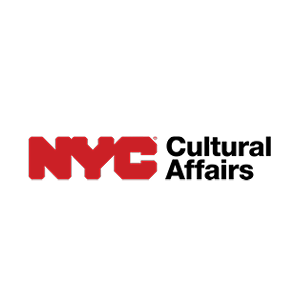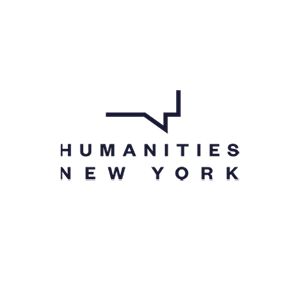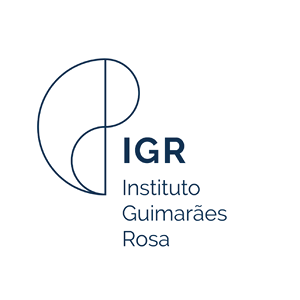A letter from Samara Grace Chadwick
Executive Director of the Flaherty
A still from Jeremy Dutcher’s music video for Mehcinut (2019) featuring filmmaker Alanis Obomsawin (1996 & 2022 Seminar Guest Artist), asinnajaq (2022 FNYC Season 24 curator), and many other Indigenous activists and artists. Read more about Dutcher’s Table of Excellence. On his debut album, Wolastoqiyik Lintuwakonawa, Jeremy Dutcher sings alongside century-old wax cylinder recordings of Wolastoqiyik people performing their traditional songs. We are delighted to include the full album in MAKA: Many Eyed Vessel. We recommended you listen— perhaps even while reading.
We are horrified by the violence taking place in Palestine and Israel and condemn the ethnic cleansing of Gaza. We stand with people around the world fighting for their rights to home, safety, and dignity — as well as their right to narrative sovereignty. Ceasefire now.
So much is at stake in the future being written, so much trauma inscribed in generations to come. Trauma that is apparently palatable, to some, perhaps because we have seen it before. The tactics are so familiar because they enabled the inception of our current settler states. In their midst, we have learned to be either voiceless or fragmented in our outrage. We have learned to look away.
Beauty is not uncomplicated. It is the ability to see everything; to confront everything.
— Dionne Brand (Nomenclature, 2022)
I have been thinking about power. About narratives of belonging and how these stories circulate, curdle and coalesce in ways that can ignite both our deepest humanity and our darkest brutality. I have been thinking about the role of documentary in our notions of who deserves land, dignity, our time, our compassion. We all know how ferociously credence has been given to a settler aspiration to home, at the expense of the people to whom these lands have always been home.
I have been thinking of the ways this institution and our founders, Robert and Frances Flaherty, have contributed to the notion that indigenous people need to be “humanised“. As with land, property, and laws, the contours of these stories of home were set by the newly arrived: the settlers (often terrible listeners), whose own humanity consistently exhibited such fatal flaws.
Robert Flaherty went to the North as a mineralogical prospector. He was searching for something of value. What he found was not minerals but a people, the Inuit. The prospects were good; his method still applied. He mapped, charted, extracted, and brought what he had ‘found’ back to where it had ‘value': monetary. A fur trading company financed the film; they (rightfully) understood it to be advertisement for its wares. A century later, this is still how most documentary films are made, and shown. We understand the value of cinema from the comfort of our seats, but rarely come to know the scars left behind by the excavation. We rarely note the ways our cultural values can be flattered, swayed, and atrophied by the enticing worlds onscreen.
Robert and Frances Flaherty’s filmography outlines the efforts of empire: Moana (1926) was made with Hollywood money in the newly annexed American Samoa; Elephant Boy (1937) was filmed with British money in India under British rule. A commission from Standard Oil brought us Louisiana Story (1948) alongside expanded drilling in the Gulf of Mexico. Each film presents an enchanting, if infantilizing, glimpse into a people whose long standing way of life and home was about to be irrevocably changed by the very forces commissioning the film. Each film remains silent about this intentional erasure. Flaherty relegated the people in his films to a fantasy space of peaceful — or rather, pacified — coexistence with the colonial coup at play.
It is not by accident that the colonial industries funded Flaherty’s endeavours: they saw the value in controlling the narratives of the lands they were seeking to exploit. The script of colonialism continues to run deep. I can’t help but notice the many elements of today’s news cycle that continue to reiterate ideas etched long ago by people like The Flahertys whose humanity was, at times, only as deep as their funders’ pocketbooks.
Allakariallak, the man who portrayed Nanook, died a year after Nanook of the North premiered — not the first documentary film, but by all means the first commercially successful one. Flaherty would tell reporters that ‘Nanook’ had died of starvation on a hunting trip, a careful PR move highlighting the hostile environment he had braved while making the film. The elders of Inukjuak told another story: Allakariallak had died of "white man's disease" – tuberculosis, brought most certainly by the fur traders, if not by Flaherty himself. Maggie Nujarluktuk, who portrayed Nanook’s fictional wife in the film, mothered Flaherty’s child, Josephie Flaherty, on Christmas day 1921. Josephie never met his father, and his generation was then subjected to the brutal relocation measures set in place by the the Canadian government: families were separated and brutally relocated, lifestyles obliterated, sled dogs killed, a way of life effectively and irrevocably erased. While a generation of settler Canadian children watched Nanook in their classrooms, generations of indigenous children were stolen from their homes in the Sixties Scoop which lasted well into the 1990s. The Flahertys toured on with the film, never speaking to these great inhumanities.
Beauty is not uncomplicated; people are not uncomplicated. After Robert’s death, Frances Flaherty channeled most of her resources into a space for gathering and for critique. The home she bought for herself was converted into a screening space and hosted the first seminars. An avowedly white space at first, the seminar’s prerogative has nonetheless long been to invite a constant challenge of its blind spots. Since the fifties, it has brought revolutionary people together, across difference, to upend entrenched notions of people, place, and story.
It is our hope that you are receiving this newsletter because you have experienced this potential for transformation in some way. Coming together to debate and question is fundamental to our ability to navigate the complexities of our world with curiosity and love. To truly see.
We are a film seminar. We see cinema as a catalyst for the conversations and communities we all long to have.
Last week, Opacity programmer Janaína Oliveira offered a Manifesto for this Beautiful World. She spoke about the root of curation – as a word, curare, and as a practice – in care. She invoked Tina Campt’s speech at the Loophole of Retreat:
Care is comfort, compassion and sustenance delivered even in the face of inevitable failure. Care is a demonstration and instantiation of attachment and relation.
Care is also a refusal. It is a refusal to be insensitive to the pain or suffering of others. It is refusal to look away or look past the precarity of those in need.
We refuse to look away. The atrocities of the past month defy all humanity, we are mourning and aghast at the violent disconnect between the agendas of the powerful and the suffering of the people. We look to one another — to the resilience of those who are embodying love and resistance, community and solidarity. Our grief is borderless, our calls for ceasefire united. Thank you to all who are in the streets, and to all who in their daily practices are aching to manifest a new world, one where violence is obliterated, children are free to be children, and the genocides in Palestine, Congo, Sudan will cease.
Yes, it is hard to conjure repair when such gratuitous death is taking place in real time. Yes, an invitation to a film screening may very well feel incongruous, meaningless. How hard it is to conjure meaning when so much is so devastating and broken. It is a modest offering in the dark times, but we invite you to come, watch, listen.
“From the heavy debris of loss, together we emerge.”
Wolastoqiyik musician Jeremy Dutcher, quotes this poem by Qwo-li Driskill as the inspiration for his latest album, Motewolonuwok (2023). We are absolutely honoured to include Dutcher’s music in the exhibition Exhibition: Remembering Our Futures, Now, curated by Raven Two Feathers, which opens the MAKA: Many Eyed Vessel mini-seminar at DCTV, November 17-19.
MAKA: Many Eyed Vessel is an alchemy. It is “a collective spell towards a time/space/territory in which we are capable of expressing, in our own forms and languages, how we want to live.” Together we will engage with the works of artists Azucena Losana, Beatriz Santiago Muñoz, Christopher Makoto Yogi, Colectivo Los Ingrávidos, Colectivo Silencio, Colectivo Yi Hagamos Lumbre, Dan Taulapapa McMullin, Demian DinéYazhi', Ha’aheo Auwae-Dekker, Jemma Desai, João Vieira Torres, Karrabing Film Collective, Larissa Sansour & Søren Lind, Meagan Byrne, Miko Revereza, New Red Order, Poh Lin Lee, and Sanaz Azari. Together their works will ignite and inspire conversations, conversations many of us yearn to be having.
MAKA: Many Eyed Vessel engages questions of the moment, questions of ancestry, home, and futurity — questions Palestinian filmmaker Larissa Sansour in her formidable work In Vitro (2019), part of Janaína’s Opacity Seminar (2021) and also part of Program 1 Seen/Unseen in FNYC Season 25:
How do past traumas shape our sense of self? What do we do with memories of a place that no longer exists? How do we define a national identity? What other modes of belonging might we create in the face of colonial and climate catastrophe?
Thank you to our four capacious curators, Emily Abi-Kheirs, Ha’aheo Auwae-Dekker, Isabel Rojas, and Raven Two Feathers for the staggering heart they brought to this process. Thank you to the many artists coming together for this mini-seminar experience, for sharing the light that burns deep within their work.
From the heavy debris of loss, together we emerge. I invite you to join us next week to speak — and moreover, to listen — in whatever form feels right for you:
Nov 15–19 | For the entire event, including an online session Wednesday, November 15 & a meal together after the Metrograph screening on Friday, November 17.
Nov 18–19 | For the weekend at DCTV.
NEW | For any single screening + discussion.
You’ll find more details below.
Take care,
Samara
Flaherty NYC Season 25
MAKA: Many Eyed Vessel
Nov 17-18 -19 in NYC
+ additional offerings online
Programmed by
Emily Abi-Kheirs | Ha’aheo Auwae-Dekker | Isabel Rojas | Raven Two Feathers
Featuring works from artists around the world, this program is a curated response to the 2022 Flaherty Seminar, Continents of Drifting Clouds and the stirring reverberations that followed.
With the intentions of nourishment, MAKA: Many Eyed Vessel reckons with the themes of its predecessor while navigating institutional spaces through its offerings of reflection, interconnection, and the future.
Opening Night
Nowhere Near
Fri Nov 17, 5 pm
Miko Revereza, Philippines | 2023 | 95 min | English, Tagalog
Metrograph, 7 Ludlow Street
Followed by a discussion in the cinema and a meal nearby for all registered participants.
Mini Seminar
Saturday & Sunday, November 18 & 19
DCTV, 87 Lafayette Street
Film Program 1
Seen/Unseen
This program arose from wanting to understand how the spiritual and ancestral made themselves present or disappear from our lives. These films offer one bridge to our collective experience of envisioning our different realities and spaces, and how pieces of the world are made visible/invisible. The past, the present, and the future collide into one: the path to envisioning.
With offerings by João Vieira Torres (France/Brazil), Christopher Makoto Yogi (Japan/Hawai’i), Dan Taulapapa McMullin (Samoa), Colectivo Los Ingrávidos (México), and Larissa Sansour & Søren Lind (Palestine/Denmark), and Karrabing Film Collective.
Film Program 2
The Tongue is an Island
In Ōlelo Hawaiʻi, one hānau means the sands of my birth, this is the place one would call your homeland. Amidst our understanding of place, The Tongue is an Island emerges from an innate need to grasp where we come from and how we fit into the places we call home. These films offer a glimpse into the expansive understanding of what it means to inhabit a space.
With offerings by Ha’aheo Auwae-Dekker (Kanaka Maoli), João Vieira Torres (France/Brazil), and Sanaz Azari (Iran).
Film Program 3
Conjuros Y Ofrendas Para Un Futuro Incierto
This program calls upon us to remember, recognize, and express gratitude to our ancestors with affection. It is inhabited by films that yearn to survive in the darkness. When the system demands that we surrender to fear and claims there is no hope for the future, these stories, images, and sounds invite us to rethink time, bringing us closer to a sacred place to nourish the body and soul, and rekindle our spirits with the light.
With offerings by Colectivo Yi Hagamos Lumbre (Zapotec communities Mexico), Beatriz Santiago Muñoz (Puerto Rico), Colectivo Silencio (Perú), Azucena Losana (Mexico/Argentina), and Colectivo Los Ingrávidos (México).
Exhibition
Remembering Our Futures, Now
A multimedia exhibition by artists from various tribal nations through plains medicine wheel-inspired movement, exploring all forms of time and concurrent emotions revolving around the effects of colonization and re-indigenization. We honor all parts of ourselves and the internal process it will take to deal with our current transitional period in history.
With offerings by Meagan Byrne (Cree, Metis), Jeremy Dutcher (Wolastoqiyik), Dan Taulapapa McMullin* (Samoa), and Demian DinéYazhi´(Diné).
Farewell to virtual.theflaherty.org
Over the last two years, hundreds of people from over fifty countries have gathered on our custom-built online platform at www.virtual.theflaherty.org. We watched films together, rested by the pond, conversed on the mushroom log, and sat by the fireplace to reflect on what we’d seen.We were gifted with an exceptional team and advisors who helped us build a unique online experience with a focus on serendipity, exchange, and agency. Our participants guided us to continuously improve the platform, increasing accessibility and available languages. We were excited about what was ahead.
The platform was built on OhYay, operated by Snap Industries in beta version. Last year, we learned that Snap was no longer prioritising the development of the platform. We joined forces with leaders of the hybrid movement at Columbia University, IDFA, Sundance to try to save the platform. We were able to run another successful seminar in 2023 with the platform functioning at a limited capacity. Ultimately, we recently learned that OhYay would sunset definitively—its last day was October 31st 2023.
Thank you to our brilliant advisors, online participants, and fellows who helped us learn more about what The Flaherty Seminar has been, can be, and might yet become.
Thank you to our formidable hybrid team, lead by Juan Pedro Agurcia (Producer) and Michael Krisch (Creative Technologist, Brown Institute for Media Innovation),
with Ziv Schneider (Creative Technologist), Alexander Porter (Creative Director), Katsitsionni Fox (Creative Advisor), Tong Wu (Creative Technologist), Homer Mora (Reflection Space & Sound Design), Alexander Kislyakov (Image Modelling), Abby Lord (Production Coordinator), Joel Neville Anderson (Audio Coordinator), Felicity Palma, Anisa Hosseinnehzad, and Jules Rosskam (Online Fellowship Coordinators). And thank you to all our brilliant advisors, Online Participants and Fellows who helped us learn more about what The Flaherty Seminar has been, can be, and might yet become.
We’re working on wonderful new partnerships and will soon have news about the next iteration of The Flaherty Hybrid Experience. Through this all we are committed to accessibility, affordability, and to bringing together minds and spirits across different spaces, worlds and temporalities. Stay tuned!
Community News
Apply! DocX Development Lab – Otherwise Histories, Otherwise Futures
DEADLINE: NOVEMBER 27
Duke’s Center for Documentary Studies is accepting applications for the DocX Development Lab – Otherwise Histories, Otherwise Futures, a week-long convening of documentary artists, scholars, and non-traditional independent researchers.
A cohort of 8-10 participants will gather at Duke April 4–12, 2024 to engage in dialogue, share their work, explore interdisciplinary collaboration, and receive feedback. The lab coincides with the 2024 Full Frame Documentary Film Festival.
In addition to travel and lodging support, each fellow will be awarded $10,000.
Applications are due by November 27.
















